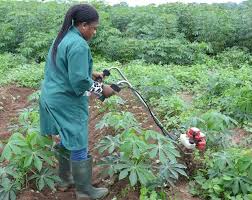The Nigerian government has successfully concluded a specialized training program aimed at integrating Information and Communication Technology (ICT) with modern agricultural practices. The initiative targeted youths, women, and small-scale farmers across the country, equipping them with digital skills to improve productivity in the agricultural sector.
Dr Asabe Vilita-Bashir, Director-General of the Maryam Babangida National Centre for Women Development (MBNCWD), made the announcement in Abuja, emphasizing that the training was designed to bridge the gap between agriculture and digital innovation. She explained that the program focused on promoting gender inclusivity while encouraging participants to embrace new technologies that could enhance efficiency in the agricultural value chain.
“This training was designed to expose participants to innovations in the agricultural sector and encourage them to leverage ICT for improved efficiency,” Vilita-Bashir said.
She highlighted that the use of technology is critical in addressing the challenges faced by small-scale farmers, who often struggle to meet increasing food demands. With Nigeria’s population projected to reach 9.7 billion by 2050, she stressed that agriculture remains a key pillar of economic growth and national development.
As part of the training, female farmers were introduced to Artificial Intelligence (AI) applications in agriculture, including robotics, soil and crop monitoring, and predictive analytics to enhance farm yields. Participants also learned how ICT tools could be used for market intelligence, weather forecasting, pest control, and digital record-keeping to track farm stocks, sales, and inventory.
Beyond technology, the program also covered entrepreneurship and social media strategies for agricultural marketing and collaboration. Farmers were taught how to leverage online platforms to connect with buyers, promote their products, and access real-time market data to make informed business decisions.
Vilita-Bashir reaffirmed MBNCWD’s commitment to women’s empowerment and inclusive development, stating that the center would continue to support the trainees by monitoring their progress and providing additional guidance where necessary. She noted that empowering women in agriculture not only strengthens food security but also contributes to economic sustainability.
Speaking on the role of ICT in agriculture, Mr Johnson Morrison-Udobong, MBNCWD’s Director of ICT, encouraged participants to apply their newly acquired skills and share their knowledge with others in their communities. He underscored the importance of digital literacy in modern farming, urging farmers to embrace technology as a tool for innovation and economic growth.
He noted that 40 female farmers took part in the training, gaining practical experience in digital solutions that could transform their farming activities.
Beneficiaries of the program expressed their appreciation for the government’s support, highlighting how the skills acquired would enable them to improve productivity and competitiveness in the agricultural sector. Many stated that they planned to pass on their knowledge to others, ensuring that more farmers across the country could benefit from ICT-driven agriculture.
To support their transition into digital agriculture, each participant received a certificate of participation, a brand-new laptop, and a transportation stipend. These resources, the organizers said, would enable them to apply their skills effectively and continue their learning journey beyond the training.
The initiative reflects the Nigerian government’s broader efforts to modernize agriculture and enhance digital inclusion, particularly for women and young people. With continued investment in ICT-driven solutions, stakeholders believe the country can strengthen its agricultural sector and position small-scale farmers for long-term success in a rapidly evolving global economy.










